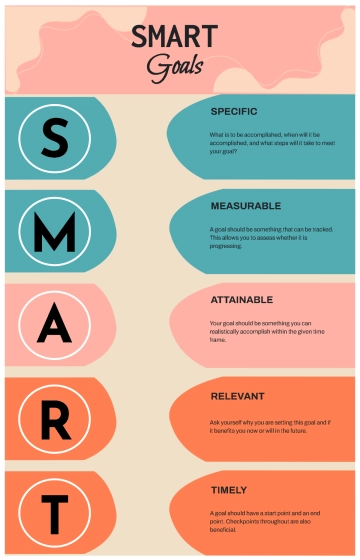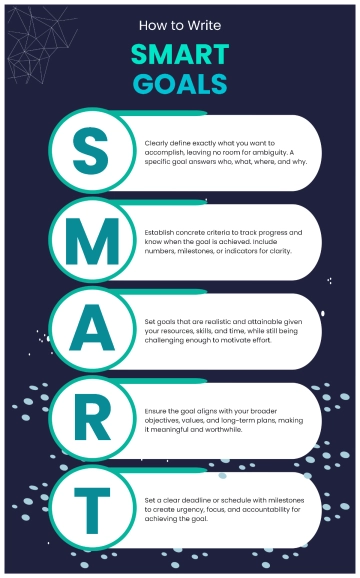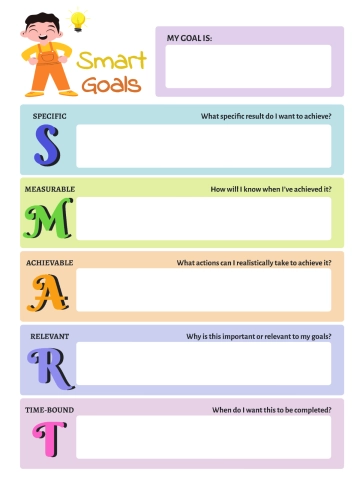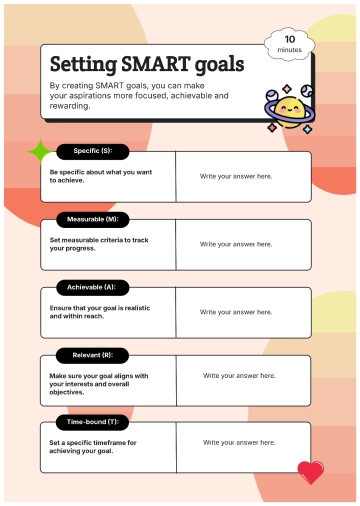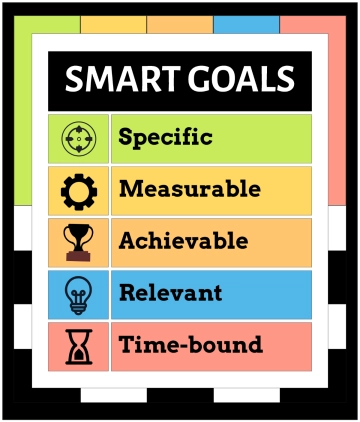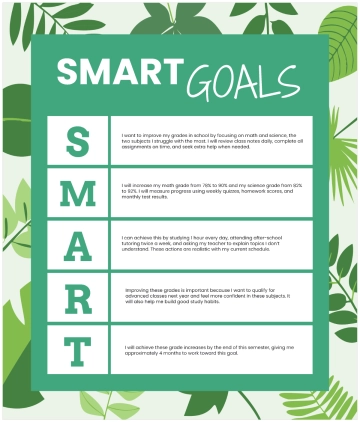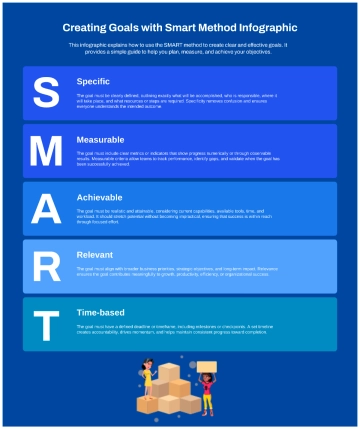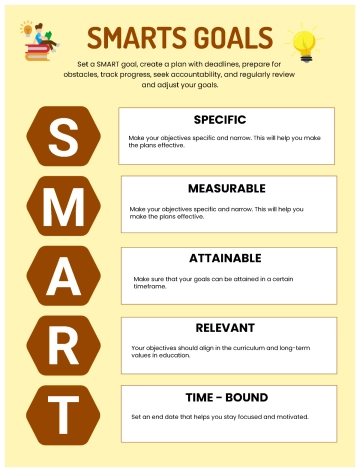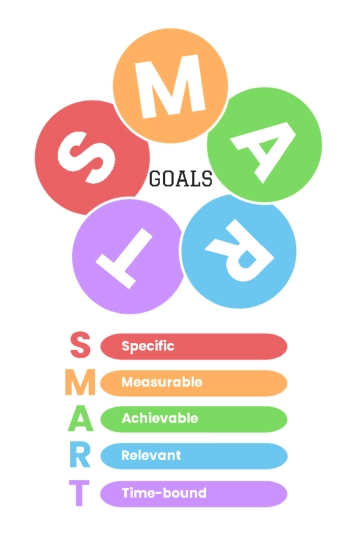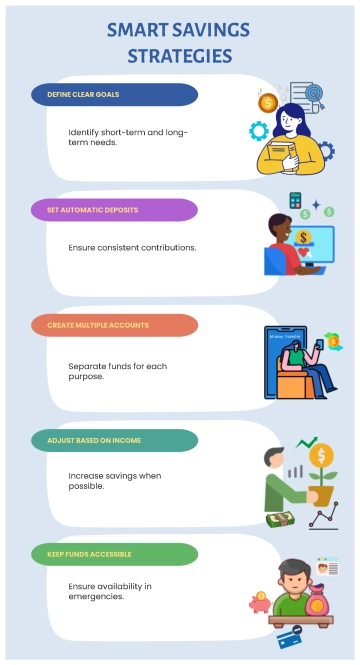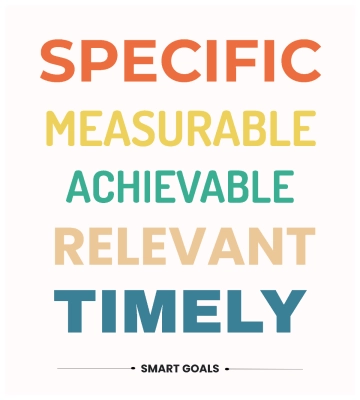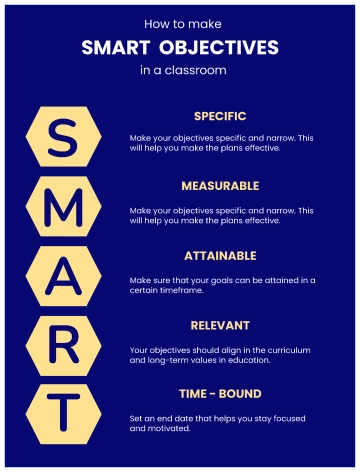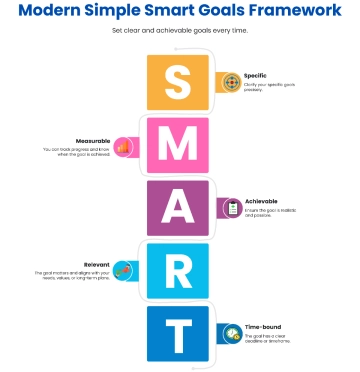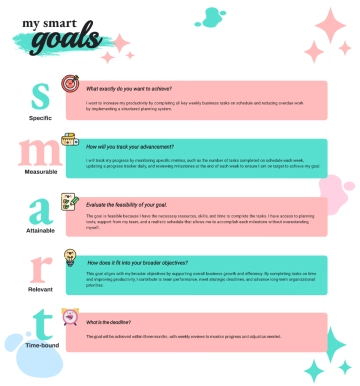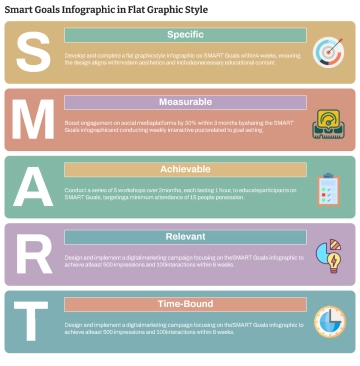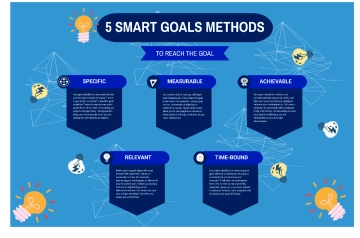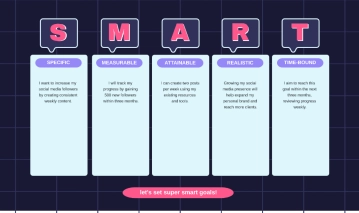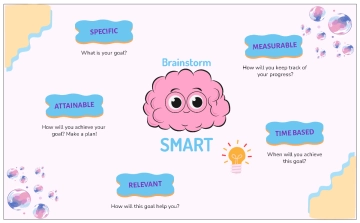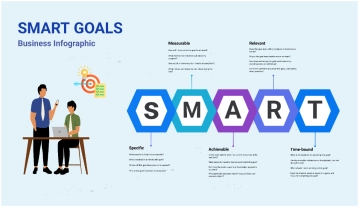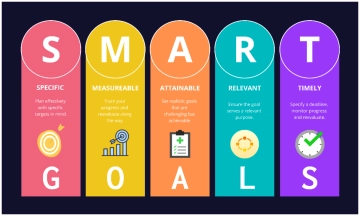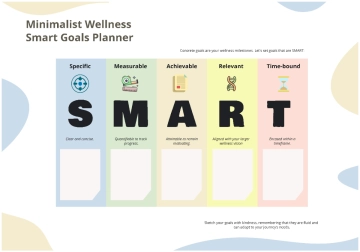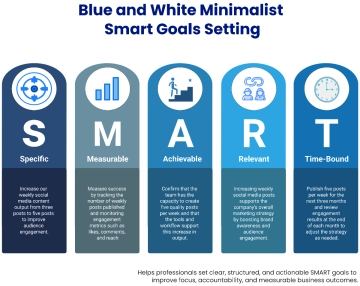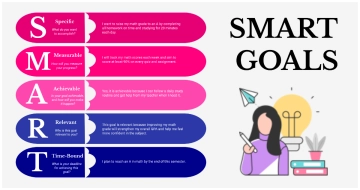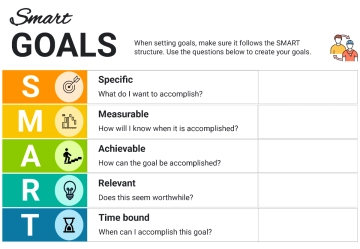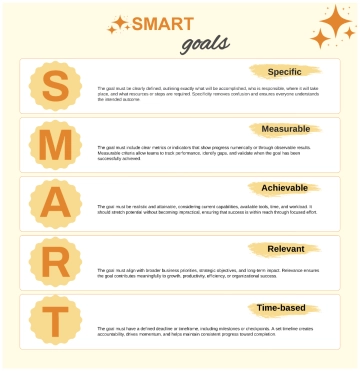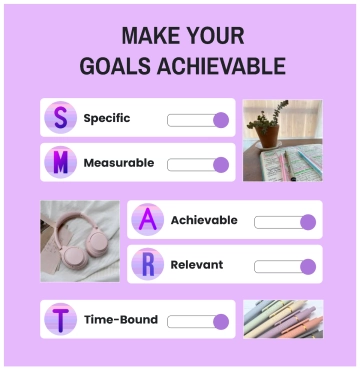Free Mental Health SMART Goals
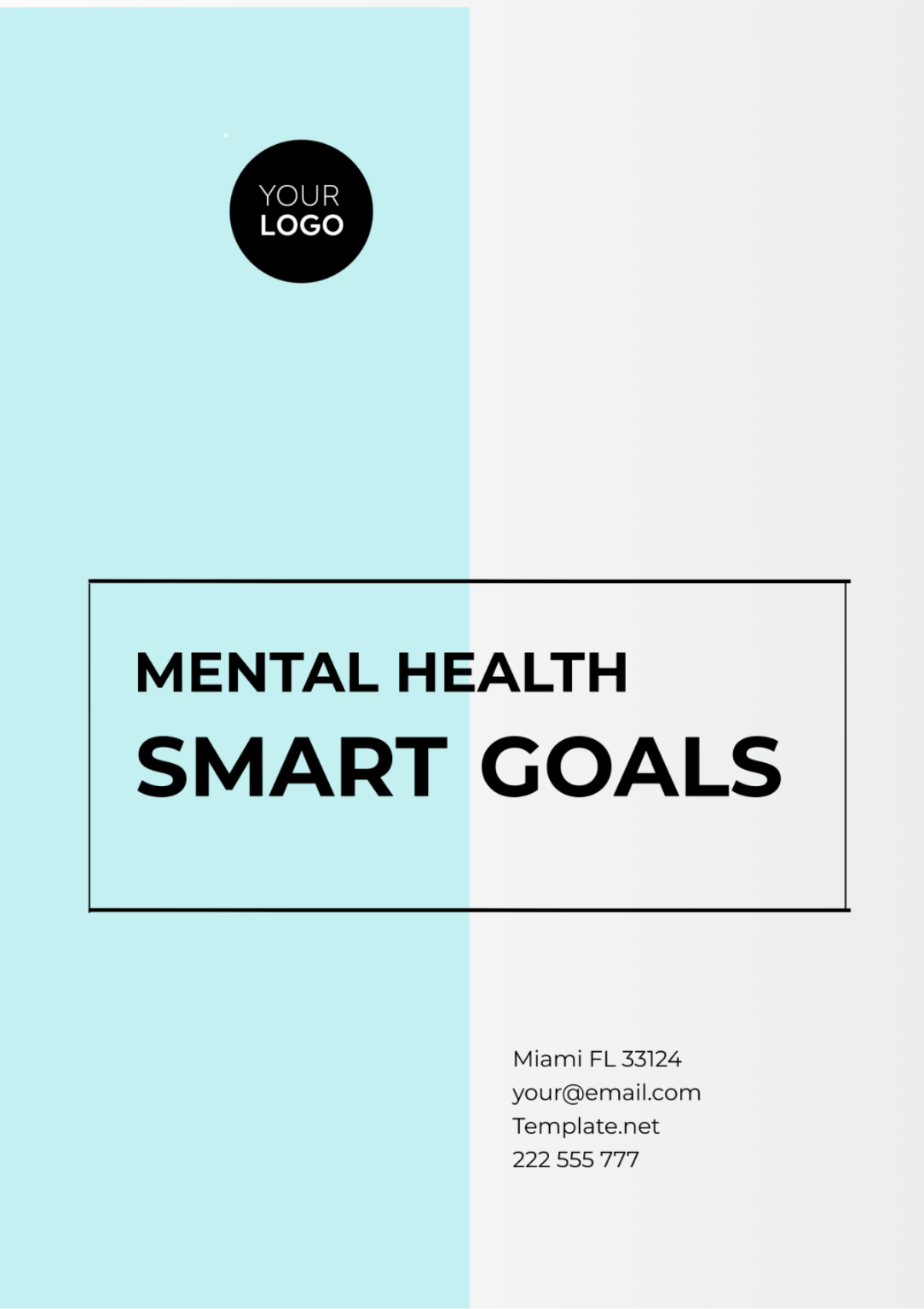
Prepared by: [YOUR NAME]
Company: [YOUR COMPANY NAME]
SMART Goal
Initial | Initial Meaning | Component |
|---|---|---|
S | Specific | Develop specific coping strategies tailored to individual needs. This goal focuses on targeting [Coping Strategies] to manage anxiety effectively. |
M | Measurable | Monitor progress through journaling anxiety levels and coping effectiveness. Quantifying [Anxiety Levels] and [Coping Effectiveness] allows for clear tracking of progress over time. |
A | Achievable | Attend [Frequency] therapy sessions and practice coping techniques [Frequency]. Setting achievable actions ensures that the goal is realistic and manageable within current constraints. |
R | Relevant | Reduce anxiety symptoms to improve overall [Quality of Life]. Aligning with the broader aim of enhancing [Well-being] ensures relevance and significance. |
T | Time-bound | Achieve significant improvement within [Time Frame]. Setting a specific timeframe provides a sense of urgency and motivation to work towards the goal consistently. |
Action Plan
Develop Personalized Coping Strategies:
Task: Collaborate with a therapist to identify individual triggers and develop tailored coping techniques.
Deadline: [Date]
Practice Coping Techniques Daily:
Task: Dedicate time each day to practice identified coping strategies, such as deep breathing exercises or progressive muscle relaxation.
Deadline: [Date]
Keep a Coping Journal:
Task: Maintain a journal to record anxiety levels, triggers, and the effectiveness of coping strategies.
Deadline: [Date]
Engage in Supportive Activities:
Task: Participate in activities that promote relaxation and stress reduction, such as yoga, meditation, or hobbies.
Deadline: Weekly
Regularly Evaluate Progress:
Task: Reflect on journal entries and assess the effectiveness of coping strategies, making adjustments as needed.
Deadline: Monthly
Accountability
Responsible: [Your Name]
Support System: Therapist, Support Group
Frequency of Progress Reviews: Weekly for journal entries, Monthly for progress evaluation
Method of Review: Personal journal entries, discussions with therapist and support group members
Notes & Adjustments
Initial Notes: Begin by identifying common anxiety triggers and experimenting with various coping techniques to determine effectiveness.
Adjustments: Remain flexible in adapting coping strategies based on individual needs and feedback from therapy sessions and personal experiences.
Measurement of Success
Anxiety Reduction: Demonstrating a decrease in [Anxiety Levels] and frequency of anxiety attacks over time.
Coping Effectiveness: Noting an increase in the utilization and effectiveness of coping techniques as evidenced by journal entries and therapist feedback.
- 100% Customizable, free editor
- Access 1 Million+ Templates, photo’s & graphics
- Download or share as a template
- Click and replace photos, graphics, text, backgrounds
- Resize, crop, AI write & more
- Access advanced editor
Discover a breakthrough in mental wellness planning with Template.net's Mental Health SMART Goals Template. Tailor-made for personal growth, it's both editable and customizable, ensuring seamless adaptation to your unique journey. Crafted to perfection, this template is effortlessly editable in our Ai Editor Tool, empowering you to take charge of your mental health like never before.
